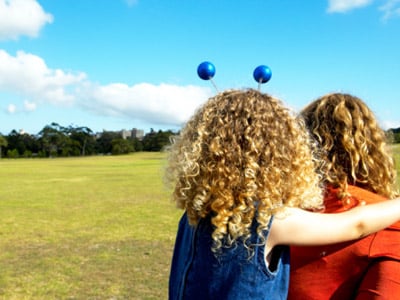One of those stories, which he related to me the summer before he died, reflects his keen sense of both. For Fred, perhaps the earliest prototype of a true "neighbor" took the form of an elderly woman who lived in his hometown of Latrobe, Pennsylvania. She was his grandmother's age, and everyone called her Mama Bell. Many times five-year-old Freddy (as he was called) would amble up her back-porch steps looking for a snack. He would arrive strategically on her back doorstep because it led straight to her kitchen, where she often made him his favorite treat-toast sticks.
"Come for toast sticks, Freddy?" she would ask. One day Mama Bell asked Freddy if he would like to make the toast sticks on his own. Imagine his delight at being able to master what seemed like a grown-up task, as well as his pride at being entrusted with Mama Bell's specialty. He was prompted to put the bread in the toaster, allowed to slowly butter the toasted slice, and then top it off with a dollop of jam. Mama Bell even let him carefully cut the toast into four long sticks.
Very soon after that encounter, Mama Bell got sick and died. Many decades later, Fred wondered if somehow Mama Bell had known she was reaching toward heaven and wanted Freddy to have this experience as a comfort to him, as a reminder of their unique friendship. Even though she was gone, he could now make toast sticks on his own, and he would always think of Mama Bell as he made them. Toast sticks may seem like a simple legacy, but they had a profound effect upon a young boy.
This story was meaningful to me when I first heard it, but it took on special significance in the months following Fred's death. (I wasn't even aware that he had been sick; his cancer came on suddenly and took his life in a matter of weeks. But I had wondered if something was wrong. His last letter to me, the one that arrived three weeks before he died, was typed. He had never typed his letters to me before; they were always handwritten. I suspected that for some reason his staff had to be involved in completing that last letter. But at the close of it, in his own hand, he had written, "Grace and Peace and Love to you all. Fred.")
I thought about Fred and Mama Bell again when I returned home from his memorial service in Pittsburgh. Reflecting on our relationship, I realized that Fred had entrusted me with something very similar to the gift Mama Bell had entrusted to him; he had left me something while he was reaching toward heaven that I wasn't even aware of (although I had a sense that he was). For years-through our letters, our conversations, and our prayers for one another-Fred had left me with spiritual "toast sticks," a legacy that would comfort me long after he was gone, providing sustenance of a different kind. Now that I had them, I could enjoy them on my own, even when he was no longer here.
But Fred knew better than that. Sustenance is to be shared.
During my second visit to the Neighborhood, Fred was taping a program on sharing. He held a fig bar up to the camera and said, "I wish I could break this in two and share it with you." Later, during our interview, he said to me, "You know, we were just taping this afternoon about sharing. And as a matter of fact I was thinking of you, Amy, as I broke that fig bar in two. And as I said, `I wish I could pass this through the television set,' it just dawned on me-that was very much like the Eucharist, how [food] could be broken and offered to nourish others. And yet there was no way I could put that food through the television set, so I said there are other ways of sharing."
Other ways of sharing. Other ways of nourishing. And so with that in mind, I began to gather up the spiritual toast sticks Fred Rogers had bequeathed to me.

